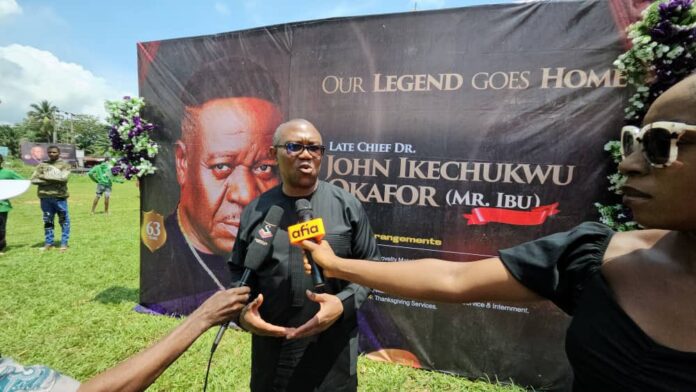Former Anambra State governor and Labour Party (LP) presidential candidate in the 2023 elections, Peter Obi, has raised alarm over alleged threats to his person. These threats, he claims, stem from his New Year’s critique of President Bola Ahmed Tinubu’s administration.
Obi, in a series of statements, expressed grave concern over what he describes as Nigeria’s deepening socio-economic and political crises. The allegations have sparked a wave of reactions, with the All Progressives Congress (APC) and its spokesperson, Felix Morka, at the center of the controversy.
The controversy began when Felix Morka, APC’s national spokesperson, reportedly stated in a media interview that Obi “has crossed the line so many times and has it coming to him whatever he gets.” This comment, coupled with the aftermath of Obi’s New Year’s address, has drawn significant public attention.
Reacting via his verified X handle on Monday, Obi described the statement as alarming and linked it to the recent threats directed at him, his family, and close associates.
“I ask the question because my New Year message has now led to threats against my life, my family, and those around me,” Obi wrote. “While I have received all sorts of messages, one Mr. Felix Morka has gone further to accuse me of ‘crossing the line’ and has warned that I will face the consequences.”
During a New Year press conference held last Thursday, Obi detailed his concerns about the country’s deteriorating state. His critique targeted the Tinubu-led administration, pointing to what he termed “visible declines” in key sectors.
“Our national challenges are visibly worsening. Our nation and its fortunes are in clear reverse,” Obi declared. “The indices are clearly indicative of our decline; thus, our national indices tell a disconcerting story.”
He highlighted Nigeria’s alarming poverty statistics, stating, “Nigeria remains one of the poverty capitals of the world, with over 100 million people living in extreme poverty and more than 150 million in multidimensional poverty. The situation has deteriorated significantly over the past 18 months under the current administration.”
Obi also noted the country’s decline in economic standing, citing a drop from being Africa’s largest economy in 2014, with a GDP of $574 billion, to now ranking fourth on the continent. He added that per capita income had fallen from $3,500 to just $1,000 over the same period.
Despite the threats, Obi has remained defiant. He dismissed claims that he had overstepped boundaries, challenging critics to provide evidence of his alleged transgressions.
“If I have truly crossed the line, I invite anyone to point it out, as I remain committed to upholding decorum,” Obi asserted. “However, I will not be silenced in my resolve to speak truthfully, especially as our nation continues to drift toward undemocratic practices.”
He further criticized what he perceives as a growing authoritarian streak in Nigeria’s governance. “We are increasingly transforming into an authoritarian and repressive regime, where freedom of expression is being systematically suppressed. May God help us create a better and freer society for the sake of our children,” he added.
Obi’s statements have reignited conversations around freedom of expression and political accountability in Nigeria. His concerns about a repressive political atmosphere echo fears voiced by civil society organizations in recent years.
Observers have noted that the Tinubu administration, which came into power in May 2023, faces mounting challenges, including addressing economic instability and public dissent. While government officials have consistently assured citizens of ongoing efforts to stabilize the country, critics argue that policies have exacerbated poverty and inequality.
Felix Morka’s comment has further fueled the discourse, with many questioning the tone of political engagement in Nigeria. Public reactions have ranged from support for Obi’s boldness to condemnation of what some perceive as an unnecessarily confrontational approach.
As tensions escalate, calls for dialogue and transparency in governance have grown louder. Political analysts warn that the polarization of political discourse could deepen Nigeria’s challenges rather than solve them.
“Peter Obi’s allegations and the APC’s response highlight a troubling trend in Nigerian politics—where opposing voices are met with hostility rather than engagement,” said Dr. Ifeanyi Okafor, a political analyst. “It’s crucial for leaders on all sides to embrace constructive dialogue and focus on the pressing issues facing the country.”
The stakes remain high as citizens watch how the government handles Obi’s allegations. Will there be an investigation into the threats he has reported? Or will this controversy fade into Nigeria’s long history of unresolved political disputes?
For now, Obi insists he will not be silenced. “I have a duty to speak for the millions of Nigerians who cannot. Our challenges are immense, but our resilience as a people gives me hope,” he said during his address.

